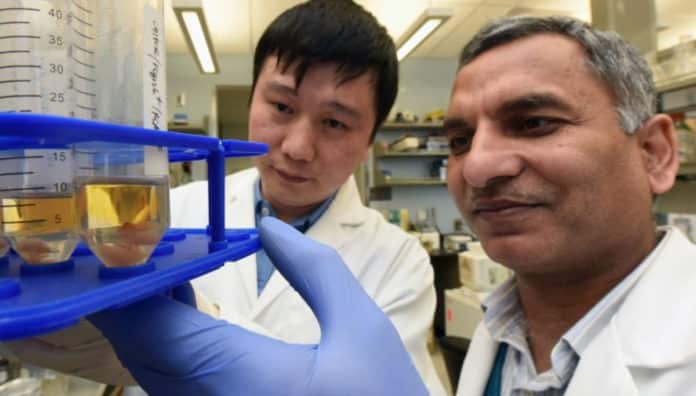Pathway That Helps Us Make Antibodies Explained By Scientists
Our bodies are continuously concocting specific antibodies to thwart invaders such as a virus or even pollen, and scientists have new information regarding how the crucial production gets fired up and keeps up.
Dr. Nagendra Singh an immunologist in the Department of Biochemistry and Molecular Biology at the Medical College of Georgia at Augusta University said: “It’s a key protective mechanism which the scientists want to better comprehend with the long-term goal of manipulating it to help keep us well”.
He also added that they are attempting to design small molecules that can either block or activate this pathway.
The pathway is basically known as ufmylation in which a polypeptide call Ufm1 is known to target other proteins, connect with them, and alter their function. One of those proteins is Ufbp1, and researchers have learned that the Ufbp1 that emerges is vital to both immune cells called naïve B cells getting antibody-producing plasma cells and to plasma cells stepping up production of protective antibodies.
Mr. Singh stated that: Better understanding of how this natural protective mechanism works could ultimately help design better vaccines, the investigators write. In fact, current vaccines assist prime B cells
to have memories of certain invaders so they can more quickly react.Selective increases in this Ufbp1 or ufmylation pathway, by way of example, might one day yield a much more concentrated attack on the flu virus.
It could be dangerous to allergy sufferers if selective intervention stops the production of antibodies against tree and weed pollens which are already producing itchy, watery eyes and noses this year.
It may enable a reduction in antibodies the body inexplicably makes against itself in autoimmune diseases like lupus and arthritis. In fact, the scientists already are looking at making the alteration in a mouse model of lupus.
They found that Ufbp1 inhibits the enzyme PERK to help B cells differentiate. Proteins have to be correctly folded for any cell or body function to occur and PERK is part of the body’s natural “unfolded protein response,” to try to fix problems with badly folded ones that don’t function correctly and may instead become toxic to cells.
When newly made proteins fold PERK becomes activated which stops new protein production and reduces the misfolded protein pileup. But at this point of time, the scientists have discovered that Ufbp1 suppresses PERK to ensure ample production of plasma cells. So when there was a deficiency of Ufbp1 in B cells, B cells survived and the evolution of plasma cells was impaired.
They discovered that Inside plasma cells Ufbp1 gets upregulated so the endoplasmic reticulum, basically, the manufacturing plant for a cell can enlarge and protein folding capacity can expand with it. Conversely, they showed Ufbp1 deficiency in the plasma cells interrupts the growth of the endoplasmic reticulum and antibody production.
Mr. Singh stated that they were aware that the proteins were folded in the endoplasmic reticulum and that an expanded endoplasmic reticulum is the hallmark of secretory cells like plasma cells being made, but exactly what components were involved that was unknown.
He stated that What they have discovered is that the ufmylation pathway is quite important in cells which secrete plenty of proteins, such as plasma cells.
Dr. Singh notices that Antibodies work like long-lived missiles Singh and plasma cells usually shoot them in the bone marrow. B cells also are created in and from the bone marrow but circulate also looking for invaders. Plasma cells then proceed back to the bone marrow and typically take aim from that point.
It can be very dangerous if the survival and maintenance of plasma cells are a continuous and delicate balance goes wrong. The plasma cells can grow out of control Without this balance and may become cancerous instead of protective and result in multiple myeloma.
Mr. Singh stated that there are people born with some vital ufmylation pathway elements missing and, while not a lot is known about the impact, it may lead to a disease that damages your brain called encephalopathy as well as blood disorders.
Singh stated that misfolding likely happens in most of us, but at low, harmless levels.






























